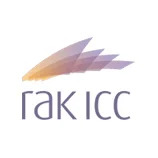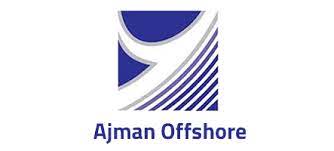
Offshore Company Formation in Dubai UAE
Today, the UAE is the leading trade and business hub of the Near East. Local authorities encourage investments in the country in different ways and have created all conditions for foreigners to do business with ease by offering a variety of forms of incorporation and solutions for business. You can establish a local company, free zone company or offshore company in any region of the UAE. The choice of company type may depend on different factors, including the field of activity, however formation of an offshore company in Dubai offers exclusive advantages for expatriates.

What is an offshore company?
An offshore company is a legal entity established to conduct business activity outside the country of its incorporation or place of its ultimate ownership. Such companies are governed by the legislation of the jurisdiction where they are incorporated. The main goal of formation of an offshore company is to manage one’s own capital and legally decrease or abolish any tax payments.
There are a few reasons to incorporate an offshore company in the UAE, the main of which is high level of confidentiality and accordingly safety of the company’s assets.
Pros of incorporation of an offshore company in the UAE
The main advantages of using offshore corporate structure are:











An offshore company in the Dubai can be used for international trade, asset protection, tax planning, purchase of real estate in certain regions of the UAE, purchase of shares in other companies, trust funds, etc.
Establishment of an offshore company is only more profitable for some kinds of business, and in spite of all advantages offshore companies have their disadvantages, such as:
- Any commercial transactions in the territory of the UAE are prohibited
- Such a company does not imply issue of visas or hire of employees
- Limitations on activity of banks, insurance and financial entities
- Difficulties with opening a bank account
It is also worth noting that an offshore company in the UAE does not receive a license but receives a certificate of incorporation. A business license can only be obtained for mainland and free zone companies. Permitted kinds of activity of an offshore company are included in the memorandum and articles of association.
All actions and administrative duties that require interaction with authorities in respect of an offshore company shall be taken and fulfilled through the registered agent on behalf of the company’s shareholder(s). The registered agent will also stay in touch with the register of companies to pay the annual renewal fee for the offshore company. As offshore companies are not allowed to have their own registered address, the registered address of an offshore company is the address of its registered agent.
Types of offshore companies in the UAE
Today, several kinds of offshore companies are available that can be incorporated in the UAE. If we generalize about them, we can name the following types:
Company limited by shares (CLS)
A significant feature of such a company is that the liability of shareholders is limited to the amount of capital they have invested. A CLS must at all times have at least one shareholder and one director. A CLS can issue bonus shares, partially paid shares or unpaid shares. For succession purposes, shares may be held by more than one person as joint owners.
Possible uses of a CLS
Companies limited by shares are flexible and administratively have simple corporate vehicles that can be used for a number of purposes, namely:
- International Business Company
- Holding Company
- Special Purpose Vehicle (SPV)
- Joint Venture
- Project Company
- Family Office
- Segregated Portfolio Company
Company limited by guarantee (CLG)
The essential feature of a CLG is that its guarantee members give an undertaking to contribute to the CLG a specified amount in the event of its liquidation. The liability of a guarantee member is limited to that specified amount. The membership rights of guarantee members are not transferable. A guarantee member remains liable to the company for one year after it ceases to be a member.
Possible uses of a CLG
A classic example of use of this company is acting as an incorporated association or conferring on apartment owners certain membership rights in the company that manages the real estate development.

Unlimited company (UC)
An unlimited company is a company incorporated with or without a share capital where the liability of the members is not limited: that is, its members have a joint, several and unlimited obligation to meet any insufficiency in the assets of the company to enable the settlement of any outstanding liability in the event of the company’s formal liquidation. Similarly to a general partnership, the members of a UC have unlimited liability; unlike a general partnership, a UC is a separate legal entity capable of owning assets in its own name.
Possible uses of a UC
Unlimited companies are flexible and administratively simple corporate vehicles that can be used for different purposes:
- A UC may be of use to avoid the need for shareholder guarantees to support the credit of the UC, for example where a UC is dealing with a sole customer, it requires recourse to the shareholders of the UC
- International tax planning
Main offshore jurisdictions in the UAE and their characteristics
The UAE has three offshore jurisdictions:
 Dubai Offshore
Dubai Offshore

100% foreign ownership

no minimum authorized capital requirement

company can conduct a wide range of activities
 Ras Al Khaimah Offshore
Ras Al Khaimah Offshore

100% foreign ownership

lower cost of business establishment

simple process of company incorporation
All the three jurisdictions have their special advantages. For instance, RAK ICC and JAFZA are two offshore companies permitted by law to own immovable property in Dubai.
In accordance with the local legislation on companies, all offshore companies in the UAE must appoint an authorized registered agent.
Stages of offshore company formation in the Dubai or UAE
If you are planning to establish an offshore company in the Dubai or UAE, you will have to take into account a few main aspects. Here are the main steps of offshore company incorporation in the UAE:
- 01
Choosing an agent to incorporate an offshore company. As we mentioned earlier, all offshore companies in the UAE must appoint an authorized registered agent, which will conduct the whole incorporation process and provide an office address. Your agent has to understand international law and the company incorporation process.
- 02
Choosing an offshore jurisdiction. Your agent will help select the optimal offshore jurisdiction in the UAE taking into account the features and structure of your business.
- 03
Choosing a name and kind of activity. First, you have to get the company’s name and kinds of activity approved. Your agent will reserve an offshore company name for you, for which you will have to provide at least three company name options. The regulations require a company name to end with “Limited”.
- 04
Preparing and signing documents. Your agent will prepare all necessary documents for incorporation; you will have to sign them and provide the originals. The list of documents depends on the jurisdiction you choose, but the main documents are the articles of association, letter of appointment of agent, certified passport copy and proof of address of the shareholder.
- 05
Filing the application and receiving the certificate of incorporation. The incorporation application shall be filed along with all necessary documents. The prescribed timeframe for incorporation of an offshore company is 3 to 20 workdays depending on the jurisdiction. After that, you will be given the certificate of incorporation of the offshore company.
Offshore business structure ideally suits companies engaged in international trade, export/import, logistics, delivery, etc. Advantages for investors, such as no need to take on lease an office or any production premises, no need for a residence permit, saving on taxes, no customs duties, etc., make an offshore company very attractive. However, it causes certain difficulties when opening a bank account.
There are a few jurisdictions in the UAE for incorporation of offshore companies. Each offshore company must have an authorized agent approved by the authorities of the jurisdiction, and this is where our company plays an important role. We have necessary knowledge of the local market and many years of experience to help you choose a jurisdiction and control the process of incorporation of your offshore company. Contact us now, and we will take care of incorporation of your company.
Started
With over 10 years of experience and 1500+ successful projects, ITA Business Consultants is your go-to partner for international tax planning. Our team of 200+ experts collaborates with 150+ international banks across 40 jurisdictions. Ready to elevate your business? Fill out the form and let’s connect!
*The listed price does not include the state fees.


